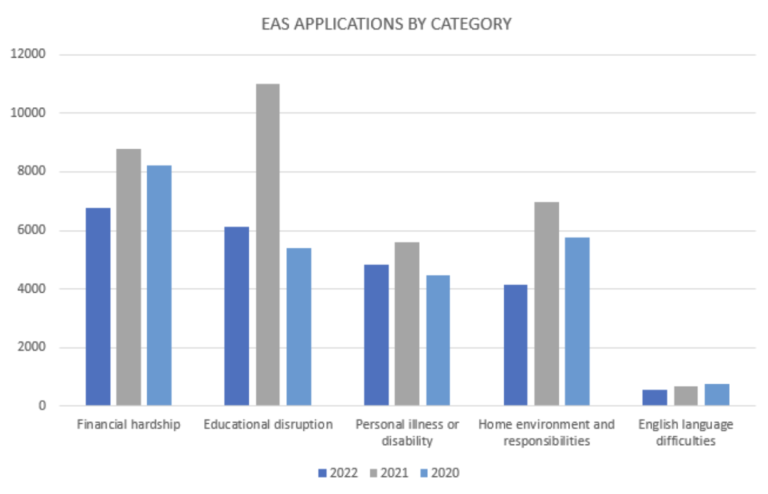At the 2022 UNESCO World Higher Education Conference in Barcelona in Spain in May, UNESCO’s Director General reaffirmed that higher education is not, and should not become a privilege, but is an integral part of the fundamental right to education. Countries need to promote local and global equity of university access.
Over the past two decades there has been a major transformation in higher education across the world with a doubling in the number of students enrolled – to 235 million students – and this number is likely to double again over the coming decade.

However, numbers in higher education are still lagging behind in developing countries, with just 10% of young people accessing higher education compared to 79% in some richer countries. Progress has been made in terms of equality between men and women, and in 2020 there were 113 women enrolled in higher education for every 100 men in the world. Sub-Saharan Africa is lagging as the only region where there are fewer female than male students in university.
The Australian Landscape
Australia has (relatively) good access to higher education, with ongoing initiatives driving improvement. In May 2021, of Australians aged 15-74 over two-thirds (68%) had or were studying for a non-school qualification. Half of all young women aged 25-34 years now hold a bachelor degree or above, compared with just over a quarter (26%) twenty years ago (May 2001).
The importance of a post-school qualification can be seen in the employment statistics in Australia. As at May 2021, 78% with a non-school qualification were employed, compared with 56% of people without one.
Lifelong learning
Australians continue to learn throughout their lives. In 2020-21, 42% of Australians aged 15-74 years had participated in learning over the past 12 months (7.8 million people). This ranged from formal study for a qualification such as a certificate, diploma or degree, to non-formal learning such as work-related training or personal interest learning. Online learning is becoming the most common way work-related training is delivered with post-COVID rates more than doubling from 19% in 2016-17 to 55% in 2020-21.
QTAC supporting access to higher education
QTAC is proud to play a part in helping give people from all walks of life access to higher education. We process upwards of 70,000 applications for tertiary study per year and in the 2022 admissions year made 51,860 offers of course places in our Queensland institutions to students.
In addition to core business, QTAC administers the Rural and Regional Enterprise Scholarships (RRES) Program funded by the Australian Government’s Department of Education. Since 2016, the RRES Program has helped give over 4,000 students in regional and remote areas access to higher education.
The QTAC website lists a number of Assistance Schemes such as the Educational Assistance Scheme (EAS) and Rural Access Scheme. To make higher education more accessible to prospective students, our Queensland institutions offer a range of support incentives such as special admissions schemes, the Rural Access Scheme, scholarships, residential funds, regional preference schemes and flexible modes of learning. You can find out more information on the range of special admissions schemes on the Queensland institution’s websites.
Author: Dr Janet Buchan
Sources
University World News (https://www.universityworldnews.com/post.php?story=20220520090907357 )
ABS Statistics (https://www.abs.gov.au/statistics/people/education/work-related-training-and-adult-learning-australia/2020-21)


